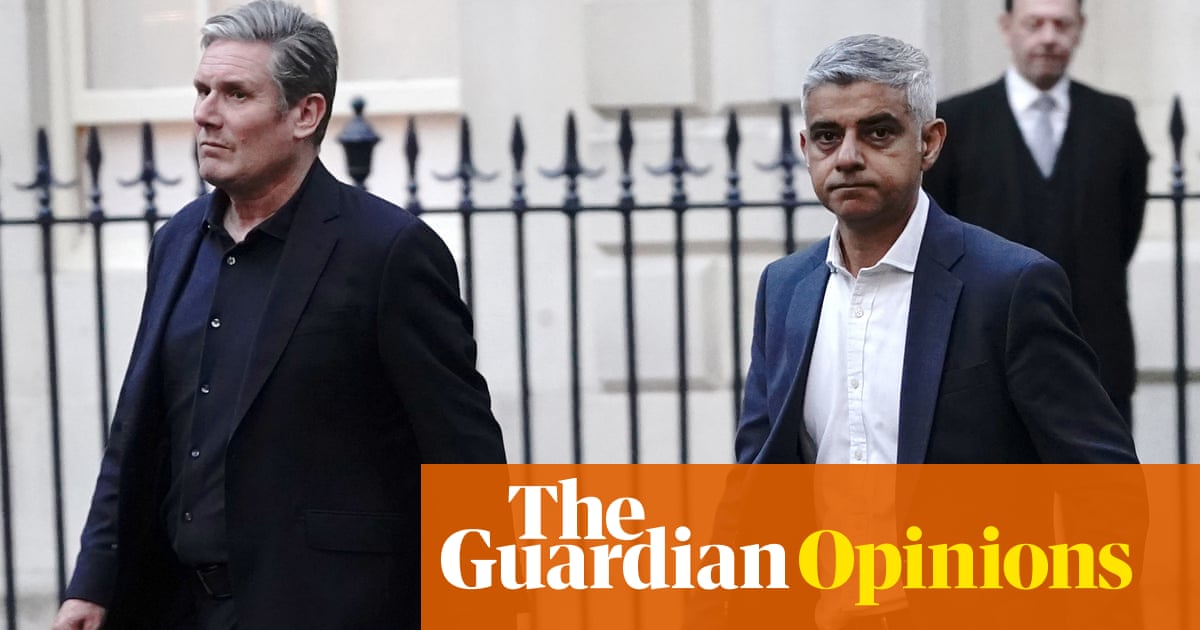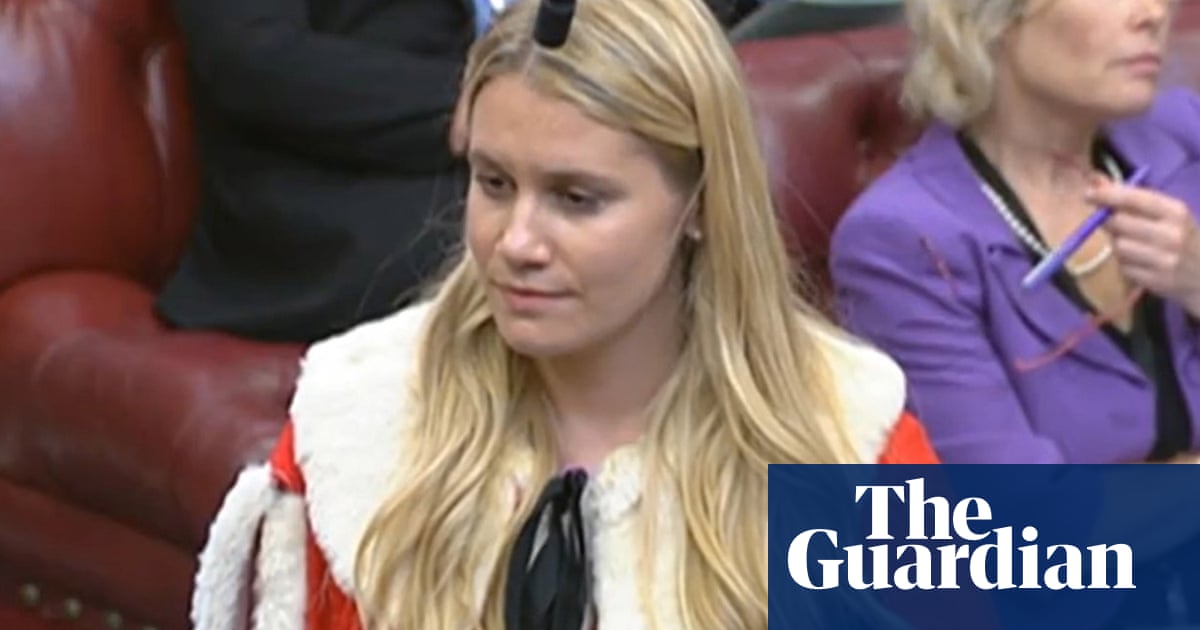
Perversely, a spectacular week for Labour somehow ended up with an assault on the party’s green policies, amid hints of internal wobbling. Despite a record Labour trouncing of a Tory majority in Selby and Ainsty, a 7% swing to Labour in Uxbridge and South Ruislip became a story about Labour in trouble, over a seat not even won in Tony Blair’s 1997 landslide.
Labour always struggles to make its narrative heard against the wall of sound from the massed foghorns of the Tory media, but the party needs more nimbleness to duck being defined by the enemy. Keir Starmer’s public rebuke to Sadiq Khan to “reflect” on his Ulez policy was a badly pitched red-on-red news story. Instead, they should have publicly agreed more generous car-scrappage schemes so that the cost of cleaning up child-killing pollution doesn’t have to fall on lower-paid drivers. Having also lost a council seat in Cambridge this month to a Conservative who stood on a platform of fighting a proposed congestion charge, Labour knows its green policies need to fall fairly on the broadest shoulders. Instead, it has allowed the Uxbridge result to distract from an electoral success that would have been unthinkable a couple of years ago.
Those around Starmer swear there is no green wobbling: if there was any briefing to the Murdoch press against Ed Miliband’s greenery, it must have come from some strutting loose-lipped junior. But the gossip had legs after that delay to Labour’s £28bn green investment plan – a delay devised as proof of Labour’s iron fiscal discipline. In reality, getting spades in the ground, battery factories built, workforces trained for new green jobs and wind turbines ready to whirl will take time anyway: capital spending can start rolling out as needed.
Here’s why there will be no green retreat: Labour’s green policy is no nice-to-have decoration separate from its economic strategy. That “fairer, greener future” slogan at the last Labour conference is the very heart of Starmer’s “growth, growth, growth” plan. Modelled on Joe Biden’s Infrastructure Investment and Jobs Act, it’s an even bigger green investment per capita than Biden’s. Those billions are why Starmer dares promise to outdo the G7 on growth, with job-generating renewables publicly owned by Great British Energy, and by building new and insulating old homes.
Michael Gove set the tone for the most recent Tory attacks, accusing Labour of a “religious crusade” as he sheds his own green policies. Grant Shapps vows to “max out” Britain’s North Sea oil reserves, against Labour’s pledge to give no new licences.
But if the Tories insist on green warfare, more fool them. Labour has green policies designed to bring savings, not new costs, to voters’ energy bills.
Remember, Gove was there in 2013 beside David Cameron when he cut the “green crap” and abandoned subsidies for renewables, despite all that “vote blue, go green” husky-hugging designed to de-nasty his party. Cutting “the crap” added £2.5bn to UK household bills, while the number of homes getting their lofts insulated fell by a shocking 92%, and those getting cavity wall insulation by 74%. Abandoning the zero-carbon homes standard meant most new homes have been built with lower energy-efficiency standards – and higher energy bills. Worst of all was barring onshore wind to appease his nimby MPs: failing to use the cheapest energy costs households £180 a year – and onshore wind, even in people’s back yards, is popular.
If Labour needs more green ammunition, Gove’s attack on Natural England, undermining basic environmental standards for new developments, goes against public sentiment: Tory voters tend to like nature and hate sewage in their rivers.
If the Tories are mad and bad enough to want green wars, the public will be on Labour’s side because its green message is not about sacrifice, but about growth-inducing investment, cutting costs. Ed Miliband, who has been close to Starmer over many years, has been masterly in setting that tone as the guarantor of Labour’s green intentions. (No, Starmer never said he “hates tree-huggers” – that was a Tory lie, according to his team.)
Lisa Nandy is the other pillar of Starmer’s growth strategy, with her huge house-building ambitions, planning for 70% of people to own their own homes and the majority of the rest to have secure social housing. Decent homes standards will apply to private as well as social landlords, sparking widespread repairs – another engine of growth.
It’s a bit late for Gove’s promise to complete a million homes in this parliament, as the Conservative manifesto pledged in 2019: Knight Frank says it’s “unlikely to have a meaningful impact on housing supply”. Under the 15 Tory housing ministers since 2010, housebuilding in England is due to fall to its lowest level since the second world war, Nandy points out. Since the government caved in to its nimbys and abandoned compulsory local housing targets, 58 local authorities have delayed or withdrawn their local housing plans.
On Monday, Gove managed to simultaneously boast of exempting developments from planning permission and promise lots more planners to unblock the backlog of planning applications. But that backlog was created by his own government’s 43% cuts to the planning system since 2010. Abandoning local planning rules may please some developers, but not most voters who care about their neighbourhoods. The very word “planning” horrifies out-of-touch libertarian and anti-green Tory MPs.
Bereft battalions of old Brexiters now resurrect themselves under the anti-net zero banner, apparently oblivious to public opinion. God help us, the Sunday Telegraph is even calling for a referendum on net zero. In spirit, these MPs ally themselves to countries among the G20 who this weekend disastrously blocked a plan to phase down fossil fuels and triple renewable energy capacity – mainly Russia, China and Saudi Arabia.
These Brexiters turned climate ignorers will try to drum up anti-Labour fears among Aberdeen oil workers and the few miners elsewhere who may not believe in Labour’s new green jobs until they see them. They will try to frighten drivers, so Labour needs to be sure-footed about explaining who pays for transition costs. Just Stop Oil is the Tories’ convenient target: protesters need more cleverness in engaging the public without enraging them.
But as the world boils for all to see, a back-woods Tory campaign against good climate policies is a losing cause. The latest Office for National Statistics public opinion survey finds top issues “continued to be the cost of living (92%), the NHS (88%), the economy (79%), climate change and the environment (62%) and housing (62%).” No complacency, but the Tories are dead in the water on all of those.
Labour can make common cause with those beleaguered Tories who see sense on the climate, but they have nothing to fear from the Jacob Rees-Mogg cadre of unelectables in pursuit of the unsurvivable. Any Labour advisers urging green retreat should be sent to spend their summer holiday on the island of Rhodes.
Polly Toynbee is a Guardian columnist
https://news.google.com/rss/articles/CBMibmh0dHBzOi8vd3d3LnRoZWd1YXJkaWFuLmNvbS9jb21tZW50aXNmcmVlLzIwMjMvanVsLzI1L3Rvcmllcy1jdXQtZ3JlZW4tdHJhcC1rZWlyLXN0YXJtZXItcG9saWNpZXMtYmlsbHMtbGFib3Vy0gFuaHR0cHM6Ly9hbXAudGhlZ3VhcmRpYW4uY29tL2NvbW1lbnRpc2ZyZWUvMjAyMy9qdWwvMjUvdG9yaWVzLWN1dC1ncmVlbi10cmFwLWtlaXItc3Rhcm1lci1wb2xpY2llcy1iaWxscy1sYWJvdXI?oc=5
2023-07-25 07:00:27Z
2252782378


